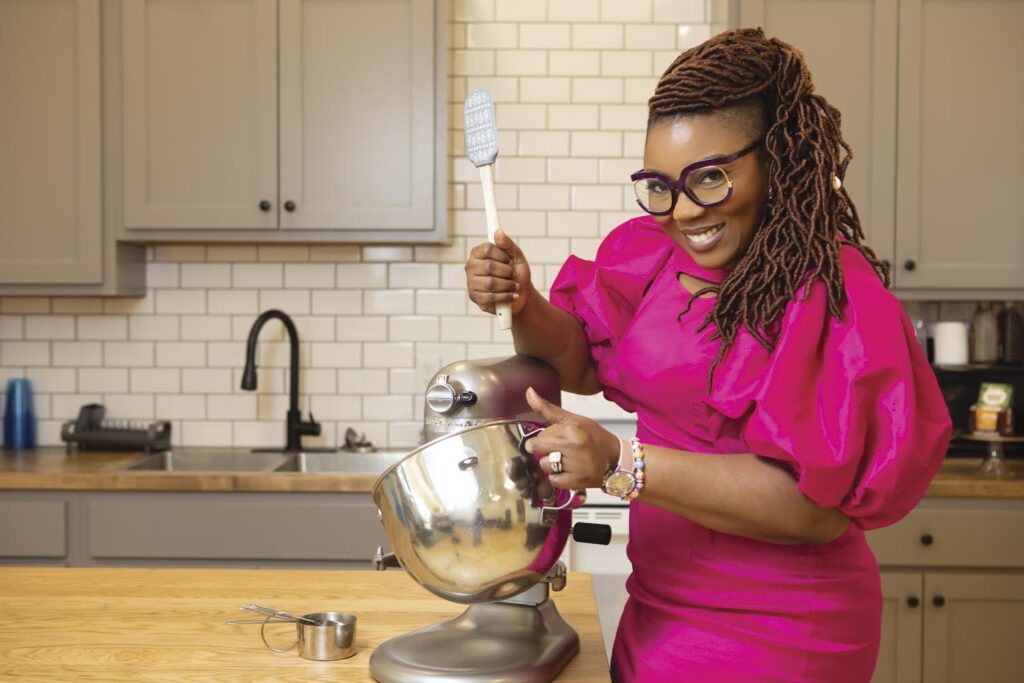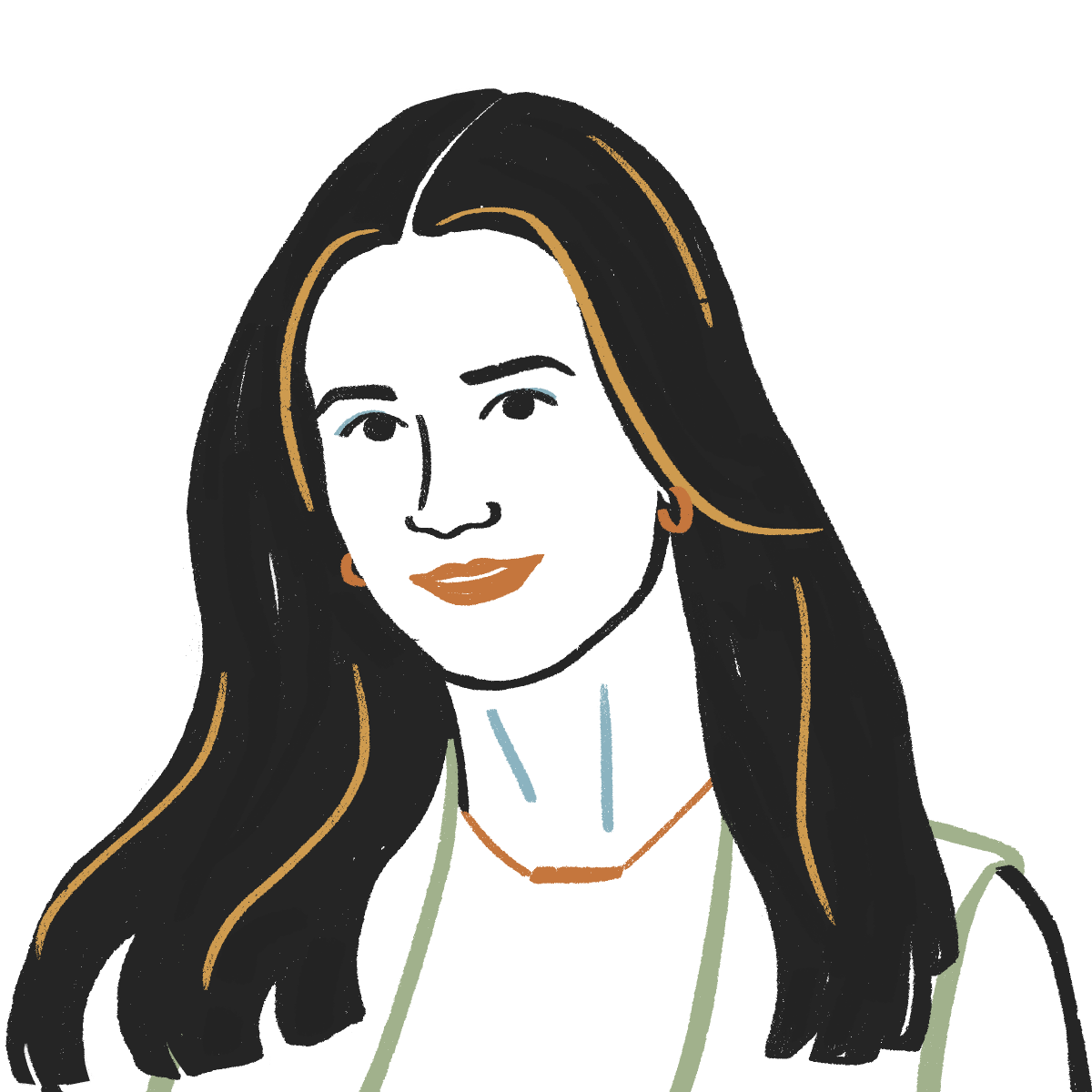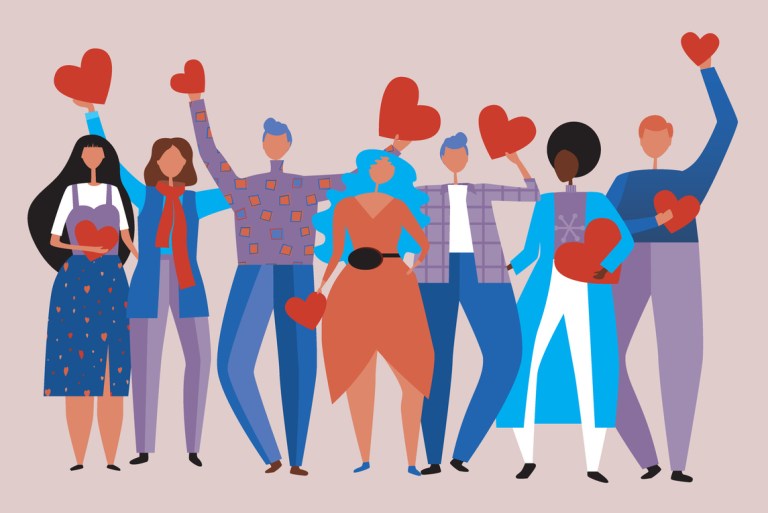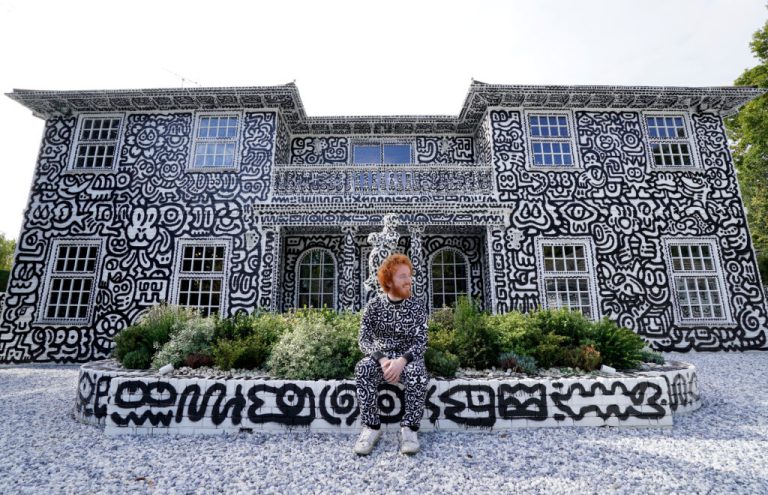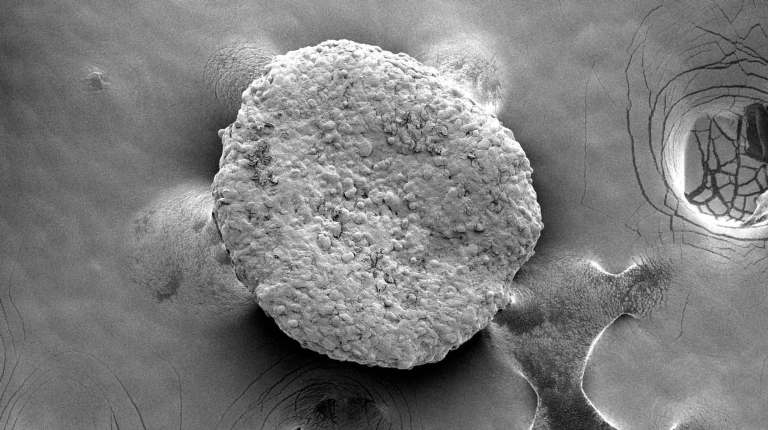When most people think of therapy, they don’t picture sugar, flour, and butter as some of the main ingredients involved in unpacking trauma.
Cake Therapy, a nonprofit founded in 2019, uses baking to provide a therapeutic outlet for girls and young women who have experienced personal trauma or been impacted by the justice system, foster system, out-of-home placement, or juvenile detention centers.
“The benefits of Cake Therapy are just limitless,” Altreisha Foster, CEO and one of the organization’s co-founders, told Nice News, adding that Cake Therapy aims “to help these girls, and generations of women behind them, change the generational trauma.”
Up to 80% of kids in foster care deal with significant mental health issues — with mental and behavioral health being “the largest unmet health need for children and teens in foster care,” per the American Academy of Pediatrics.

The Minneapolis-based Cake Therapy, which is free and caters to girls and women ages 14-24, offers a safe space for those seeking alternatives to traditional therapy or a creative outlet.
“There is a huge role for any art form to be included in any form of therapy for people to regain what has been lost,” said Foster, who’s originally from Jamaica, adding: “We need to be a little bit more open-minded about what we’re doing in terms of how we’re responding to trauma.”
The nonprofit offers bimonthly sessions, reaching the young people via social media, word of mouth, Foster’s boutique cake studio Sugarspoon Desserts, and community partners, such as the YMCA and local social workers. The organization provides guidance and ingredients, but gives participants the autonomy to decide what they want to bake from scratch during their sessions.

“We are really promoting centering of oneself, being able to have this … introspection on what’s going on in one’s life, and to be able to communicate what’s going on in one’s life as well,” said Foster.
She helped found Cake Therapy when she saw the benefits of baking firsthand after suffering from postpartum depression following the birth of her second child. Earlier this year, she put those lessons to paper and published a book, Cake Therapy: How Baking Changed My Life.
Foster added: “What Cake Therapy has also done is provide opportunities for our resources for girls to plan a future. It doesn’t have to be around baking, but we give them all the tools to be able to be ready to take on the world.”
